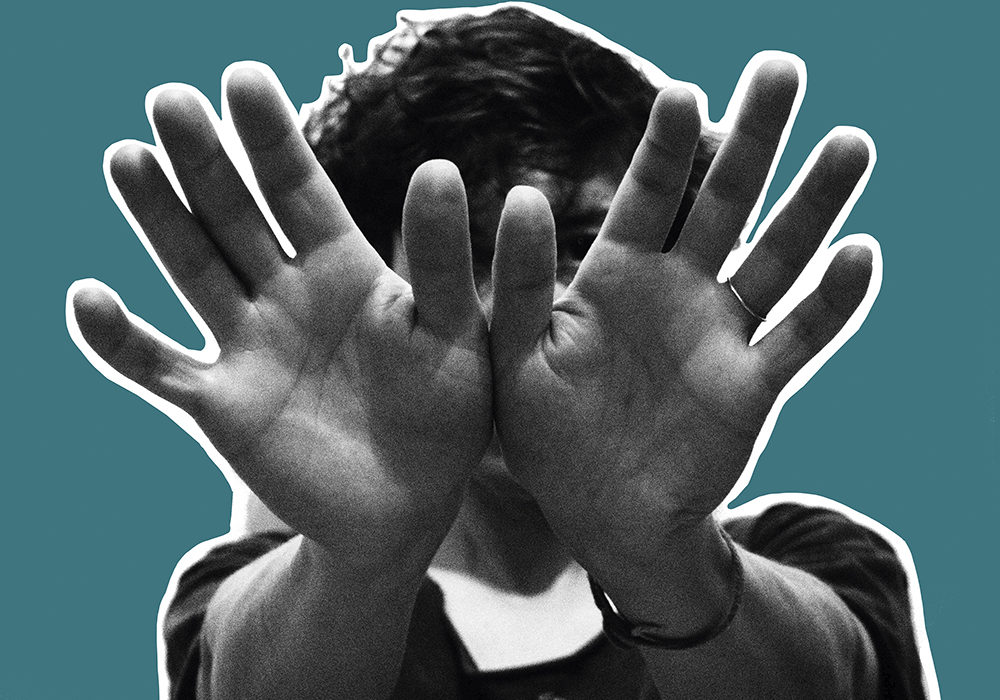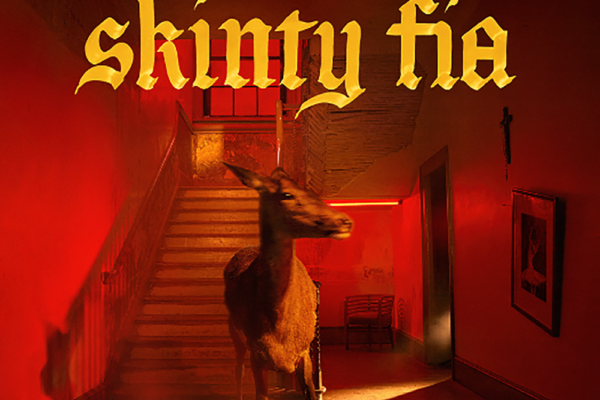The band who once boldly posed questions like “What’s a boy to do if he’ll never be a gangsta?” and “What’s a girl to do if she’ll never be a Rasta?” in 2011 seem to have offered up an intensely introspective answer to all of the above in 2018. tUnE-yArDs – the New England-based art-pop project of singer and multi-instrumentalist Merrill Garbus – have wowed a wide range of fans over the years with their intricate rhythms, gutsy prose, and pulse-racing performances, and those fans are now soaking up the band’s newest full-length record, released on Friday. I can feel you creep into my private life, whose album art shows Garbus symbolically ducking out of view behind sprawled fingers, is already garnering a big positive response, not only for its sound, but for the tough topics of race and identity it broaches.
Unlike other albums that have come our way, this particular release from the experimental group was accompanied by a personal letter from Garbus addressed to journalists, discussing, at length, the creative process behind the record, as well as her inner battles about celebrating elements of historically-oppressed cultures in her own work. Perhaps the most thought-provoking lines in her note were these conclusive ones toward the end: “The music never answered the question, ‘What should I do?’ In fact, it hasn’t provided any answers thus far. It does not answer the uncomfortable question about the role of art and artists in things such as dismantling racism, combating oppression, or halting climate change. I hope this album, which I am deeply proud of and consider our best, reaches people like our music hasn’t before. And I wonder, can it do so without erasing the work of others? I wonder if it can do so without reeking of the white supremacy and privilege that it intends to investigate. This album is what it is: a vessel for a cisgender, white woman in a heteronormative relationship to explore her place in the world. A vessel for exploring, out loud, the very concrete reasons why it’s this band, and not another, whose music you’re being offered by a record label. And I cherish this vessel.”
Longtime followers of Garbus – who took some heat in their early days for these very issues; having been too-hastily perceived as part of the music industry’s larger issue of cultural appropriation by white artists – knows she has been grappling with her problematic whiteness since well before the band existed. In fact, as recent interviews with Garbus about the new album have been highlightng, the acclaimed singer still questions her right to create anything at all in the space. As she told GQ, “It goes so far back, and it’s so strange to speak about. When I was in college I studied Kiswahili, translating plays from Swahili into English and taking lots of African Studies classes and African American literature classes,” explained Garbus. “I went to Kenya and was just so disgusted by the role of white people in colonial history—and, most importantly, present day postcolonial dynamics—that I just shut down. For years I felt like, ‘There’s no way I can make the music that I want to, which is all influenced by black music.’”
With the flood of catchy tracks on this album – including the triple-threat intro of “Heart Attack” (its beat inspired by the sound of a garage door, according to Garbus’ letter) “Coast to Coast,” and the must-spin-on-repeat “ABC 123” – of which we got a solid dose during their November show at Baby’s All Right in Brooklyn, it’s almost possible to sink into tUnE-yArDs’ experimental grooves and miss some of the inquisitive messaging woven throughout. The rich, silky vocals delivered by Garbus feel like an energizing escape from reality, and with the strong bass work from Garbus’ longtime partner Nate Brenner (with whom she collaborated constantly on the new record), along with frequent bursts of their loop-pedal mastery and eclectic acoustic percussion, it’s a magnificent trip away from wherever you are. But even amidst this excitement, the stomach-twisting subject matter is bravely front and center; unmissable in tracks like “Colonizer,” which tackle her innate self-disgust head on. As Garbus explained to The New York Times, its lyrics, “I use my white woman’s voice to tell stories of travels with African men,” have proven to be somewhat gut-wrenching to perform. “The first time, my heart jumped out of my chest,” she admitted. “A lot of my feeling about growing up white in this country is about not knowing how to talk about whiteness. I think that’s part of how white supremacy works: There isn’t language for it. I’m finding the same thing with singing. What expression do I use when I’m singing those lines? Am I looking straight ahead? Am I looking down? These very subtle performance choices contextualize completely differently.”
The truly admirable thing about Garbus’ efforts in I can feel you creep into my private life is that for her, it’s not simply enough to announce her whiteness, like some kind of a disclaimer that enables her to proceed; or wallow in her guilt, using her platform for some sort of personal therapy. No, this album is so much more multifaceted, thoughtful, and conscientious than what it could have turned into in less-careful hands. Verse by open-minded verse, the album fights and digs for a deeper understanding of such systemic racial issues, and how a white girl like herself can work to combat them. Granted, the inevitable side effect of this being instantly dubbed a “white guilt album” by various media sources feels like it’s glossing over the work a bit; not only given breadth of subject matter it tackles – from racial injustice to global warming to gender inequality – but how it might, for someone who has not yet given it a spin, make an otherwise exuberant, dance-party of a record seem like a daunting lecture. But the hasty perceptions are a small price to pay for the general public to finally start getting it, and realize that tUnE-yArDs are not mindlessly appropriating, but in fact, constantly and rigorously reassessing their right to be a part of things. And it’s always been that way. Interestingly enough, according to Garbus in that same GQ interview, their very first album, 2009’s BiRd-BrAiNs, was almost entitled “White Guilt.” This has been on their minds for some time. And now, there’s no better time for it to be on all of our minds.
You can follow tUnE-yArDs on Facebook and Twitter, and order their new album here. Their tour kicks off next month, with a NY stop at Brooklyn Steel on March 9th.
Article: Olivia Isenhart






TUNE-YARDS AMAZE AT SOLD-OUT BROOKLYN STEEL SHOW - Pancakes And WhiskeyPancakes And Whiskey
[…] had progressed nicely. Many in the crowd were now well-versed in the lyrics and chants from the new album, I can feel you creep into my private life, and joined Garbus in singing her introspective words […]